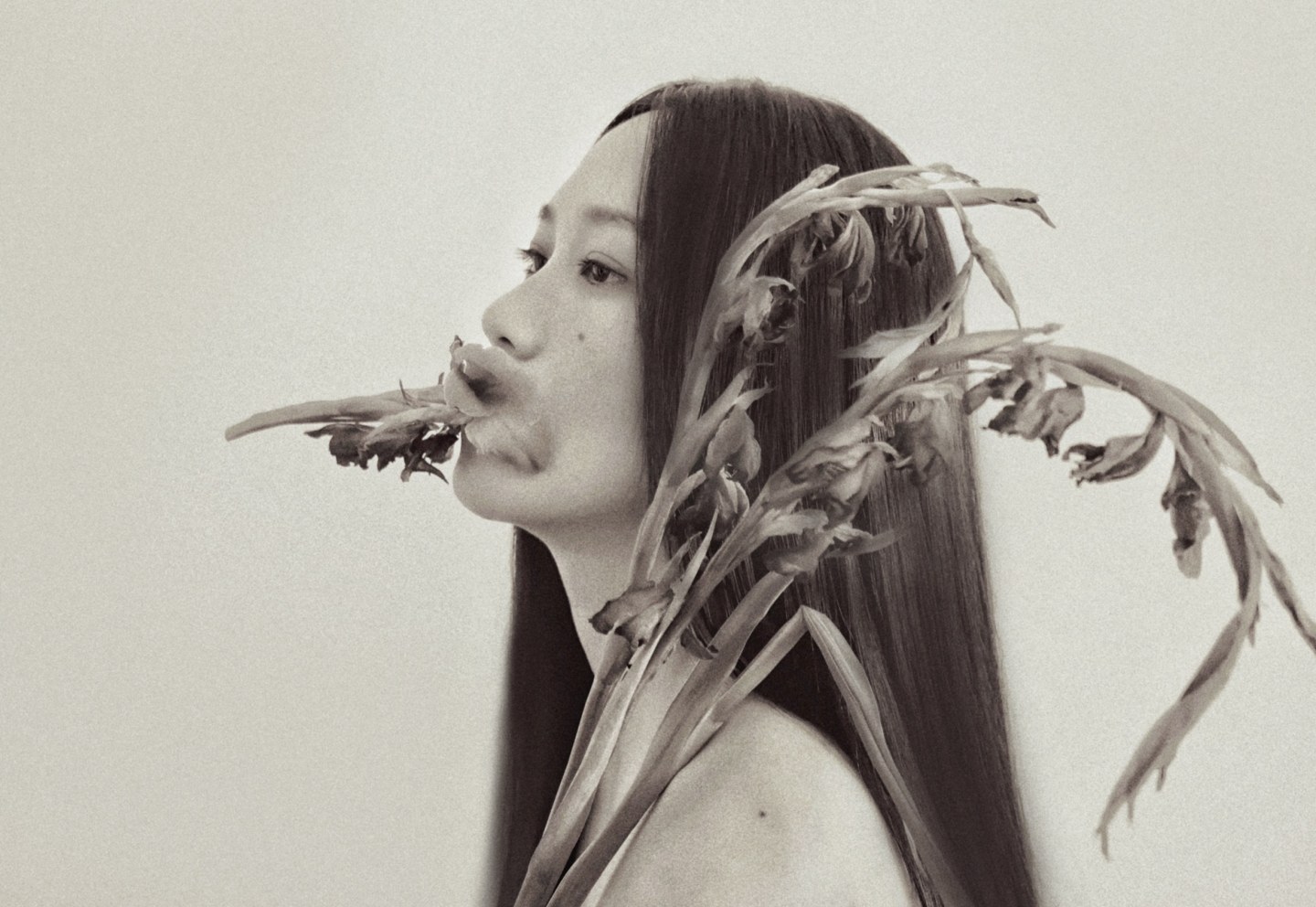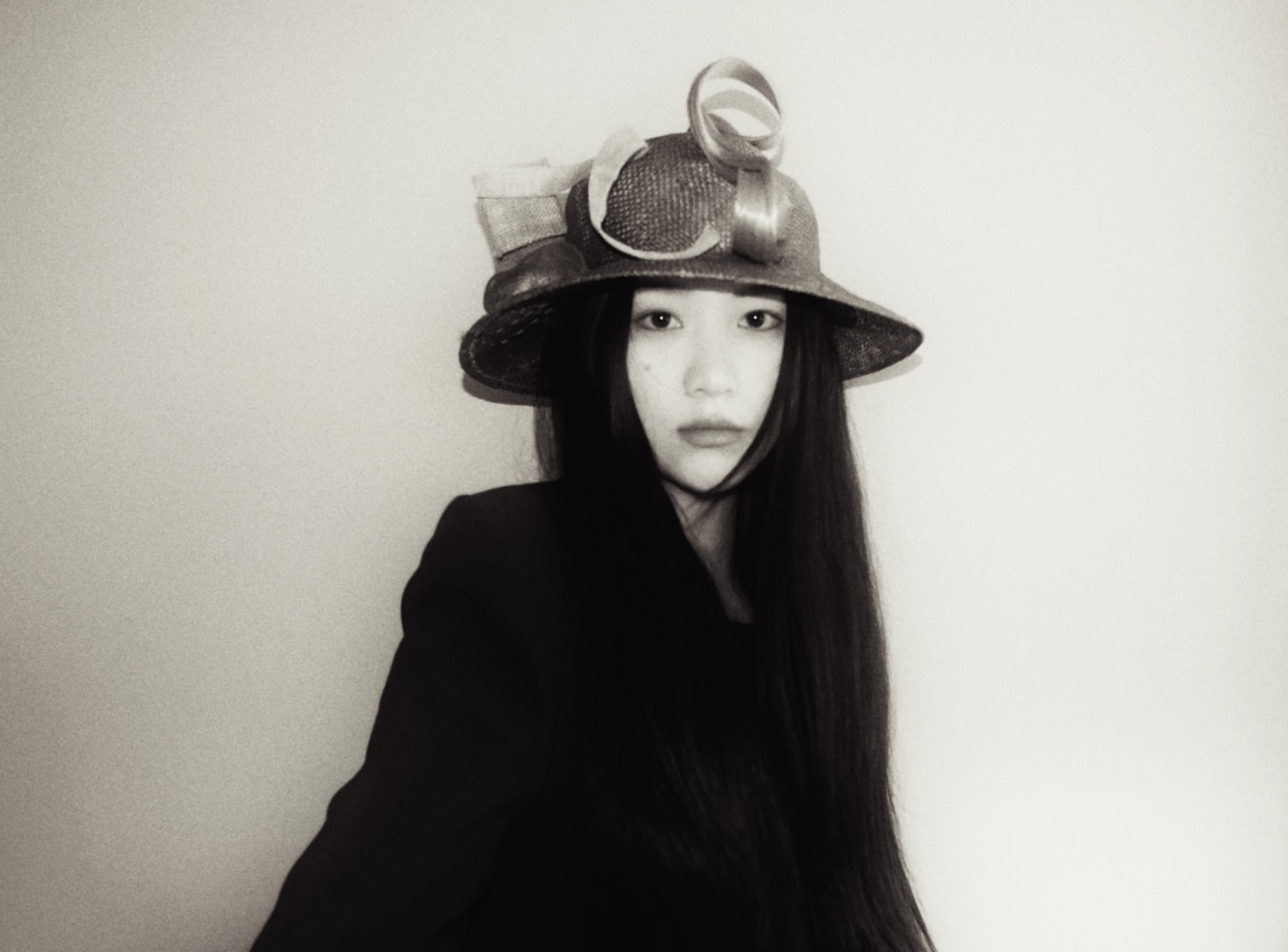Li Yilei. Photo by Joan Low.
Discover Blogly is The FADER’s curated roundup of our favorite new music discoveries.
Li Yilei’s music has always arisen from a deeply intentional practice, influenced in equal parts by their fine arts training and commitment to the non-hierarchical, anti-elite tenets of Eastern philosophy. The 12 tracks on 2021’s 之 / OF were exercises in methodical minimalism, open-ended and airy compositions that nevertheless rested on rigorously wrought foundations. This solid footing is dissolved on the London-based, Chinese composer and sound artist’s new album NONAGE, a project that sounds far freer than anything they’ve previously recorded.
NONAGE’s Mandarin title, ‘垂髫,’ translates roughly to “falling hair of a child,” representing the innocent stage at which Chinese children are encouraged to let their hair down, experiment, and explore. In bringing the project to life, Li sought to recreate that strange, halcyon phase of their existence. “I remember pressing piano keys like touching flowers,” they wrote in a press release, “reading scores like looking at paintings, writing like how I would talk to myself, greeting death like how I would greet life.”

Li Yilei. Photo by Joan Low.
The task of capturing youth’s elusive essence required not only a proverbial sense of childlike wonder but the literal sounds of Li’s childhood as well. The album’s opener, “Go, Little Book,” is a collage of forgotten ephemera: fragmented clips from old Chinese TV programs, confidently uneven plinkings on a half-broken toy piano, the sinister skittering of a hand-cranked music box. Here and elsewhere on the record, Li doesn’t idealize their unbridled early years; they recall them in their full breadth, never shying away from the abject fear and unbearable grief that attack us head-on when we’re young and not yet hardened by experience and expectation.
Track two, “O O O O,” feels at first more in keeping with the process that’s characterized Li’s past efforts, building gradually on a warbling synth groove. But, like a first grader trying to focus on a homework assignment, the song is quickly distracted, unraveling into loose tendrils of thought that rebraid and detangle again on multiple occasions over a swift two-and-a-half minutes.
Eight of NONAGE’s remaining 10 cuts are named in three-part series — “Pond, Grief and Glee”; “Tooth, Wallflower and Salt”; “Nomad, Shelter and Creed”; et al. — culling insight from the random connections of the developing mind. Themes emerge and recede like tide pools. Some sounds, like the music box crank and a set of bird whistles, return with some frequency, while others — some synthetic, some brought to life by instruments Li built with their own hands — appear only once before fading into the mist.
Forcing a narrative arc onto a record as wind-blown and wonderfully chaotic as NONAGE would be a mistake, but the songs could be viewed as the amorphous hours in an unstructured day: By the album’s final two tracks — “Pillow, Mantra and Trance” and “Thé Noir, Rêvasser, Retrouvailles” (“Black Tea, Daydreaming, Reunion”) — the feverish intensity that’s propelled the project up to that point has largely dissipated as sleep finally begins to sooth the overstimulated mind, putting it mercifully to rest before the next morning’s adventures begin.




